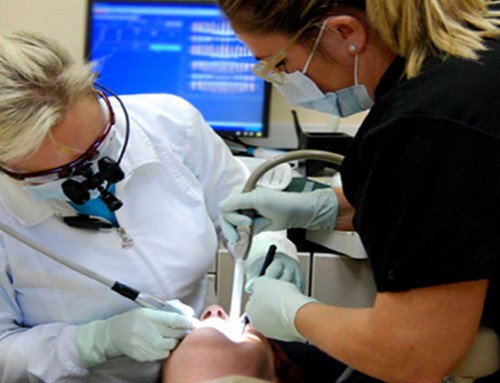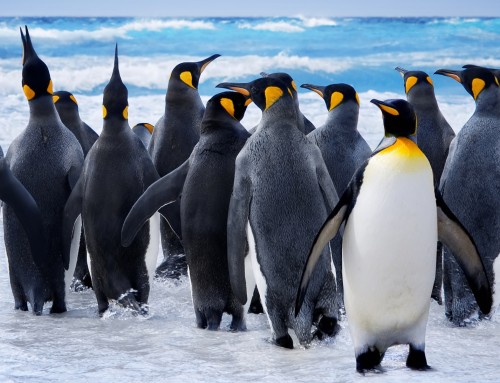In the season of office holiday parties, the question of whether alcohol should be part of the festivities often comes up. In recent years, many companies have faced liability as a result of serving alcohol at their holiday parties and the resultant behavior. The courts have been prone to impose liability on the company if the company’s conduct created or exacerbated the risk in serving excessive alcohol at the event. If an employee is injured or injures someone after drinking on your company premises or at an offsite event, the company could be held liable under several legal theories. The office party has long been a potential powder keg. Add a relaxed and celebratory atmosphere to an open bar and all you need is one lit match for it to explode.
One such example – a recent case out of California alleges that following an office holiday party, a managerial employee invited several co-workers to a second location to continue celebrating. It further alleges that toward the end of the night, the manager and one of his reports ended up alone in the hotel room and the manager sexually assaulted her. This resulted in a sex discrimination and harassment lawsuit brought by the EEOC against the company. The case is a timely reminder that even offsite functions, such as holiday parties, can lead to employer liability.
It is always the employer’s duty to provide a discrimination and harassment-free workplace, and this duty extends to work-related functions (including parties) outside of the employer’s premises.
We have heard many office holiday party tales including inappropriate dancing and touching, unwanted mistletoe kisses, unsolicited romantic suggestions, and embarrassing social media posts gone viral.
What are some of the issues for employers to spot and be aware of? They fall into three large categories, all of which, not surprisingly, may relate to alcohol.
Workers’ Compensation Claims
Workers’ compensation is an insurance system that compensates injured employees for medical treatment and some of their lost wages when they suffer work-related injuries. If an employee is injured while drinking at a company event, workers’ compensation might cover the injury. In most states, the employee would be disqualified from receiving workers’ compensation benefits if the employee’s own intoxication caused his or her injuries. However, if the intoxicated employee injures another employee at a company event, the injured employee might have a workers’ compensation claim.
Sexual Harassment Claims
When drinking is on the rise, inhibitions are lowered. Unwanted sexual attention and comments are all too common when employees and alcohol mix, which can result in sexual harassment claims against your company. Sexual harassment is unwelcome sexual conduct, advances, comments, or innuendos that are either severe or frequent enough to create a hostile work environment or that result in an adverse employment action (such as being disciplined, denied a promotion, or fired). A history of prior lawsuits shows that alcohol abuse at company parties can lead to unwelcome sexual comments, groping, and even sexual assault. As noted by the Seventh Circuit Court of Appeals in an article citing 21 different cases in which a company holiday party led to a sexual harassment claim: “At the risk of playing the Grinch, we note that office Christmas parties also seem to be fertile ground for unwanted sexual overtures that lead to Title VII complaints.” Just as in the workplace, your company has a duty to prevent sexual harassment from occurring at company-sponsored events.
Respondeat Superior or Vicarious Liability
Employees are generally held responsible for the actions of its employees during the course and scope of employment. This legal theory is called “respondeat superior” or “vicarious liability.” Employers are responsible for the costs of doing business, including the consequences of employee carelessness. When it comes to holiday parties, the best way to avoid this kind of liability is by limiting alcohol intake, providing safe ways to get home and making clear that employee attendance at the party is voluntary.
Yes, alcohol at a company party can be a liability. Employees (or guests) who overindulge could cause an accident at or after the party or violate your harassment policy.
Consider not providing alcohol at all. A viable risk management option is to avoid the exposure altogether and prohibit any alcohol and the potential of illegal, inappropriate or reckless behavior at a company function. While best practice is to make your company parties alcohol-free, there are steps you can take to protect you, your employees and any guests.
Before the event:
1. Make the event optional and clearly communicate that attendance is neither expected or required to ensure you are not held liable for employee misconduct and negligence when an employee is acting “in the course and scope of employment.”
2. Don’t have any work-related activities at the event. Hold the event off-site, outside of regular business hours and allow employees to bring a guest.
3. Set and communicate expectations around respectful behavior and remind employees to drink responsibly. Remind employees of the company’s general conduct and harassment policies in both written and verbal forms.
4. Review your insurance policies to confirm that they cover liabilities arising from the party.
5. If possible, hire professional servers (or hold the event at a staffed facility) who will politely refuse to serve anyone who they perceive has had enough to drink.
6. Remind employees not to post photos or videos of co-workers without their consent to minimize privacy concerns and media that could reflect poorly on the company.
7. Make the event non-denominational. Doing so allows employees of all religious backgrounds to feel comfortable attending and guards against religious discrimination claims.
At the event:
1 As management, set the example and model professional and acceptable behavior.
2. Be aware of what is happening around you. Watch for behavior that is inappropriate and appears to be unwelcome to the receiving party.
3. Provide ample food and non-alcoholic beverages for safety reasons and so non-drinkers know you have given them consideration.
4. Offer a cash bar where employees purchase the alcohol. This will reduce the potential of a claim that the employer provided the alcohol directly to the employees. It will also likely reduce consumption.
5. Discontinue the service of alcohol an hour or more before the party is scheduled to end.
6. In order to provide for the safety of all participants, do not be afraid to address a clearly intoxicated employee or guest – including calling the police if an intoxicated person attempts to operate a vehicle or behaves in a way that could put him/herself or others in danger.
7. Plan for how employees who have been drinking will get home. Consider providing taxis or other public transportation (Uber/Lyft) options at no cost to employees.
8. Even if you don’t provide public transportation options, don’t hesitate to call and pay for transportation for an intoxicated employee if they have no other way home than driving themselves.
After the event:
The following workday, after the event, ask employees for feedback on the party. Ask them what they liked and what they didn’t like. Ask them how they felt about the venue and atmosphere. If you invited family members or guests, ask them if they enjoyed that or if they would prefer an employee-only party. Asking these types of questions will initiate some dialogue between you and your employees regarding the party. Pay special attention to any whisperings, suggestions, innuendos or jokes of inappropriate or unprofessional behavior at the party. Specifically talk with members of your management team and/or key employees to determine if they witnessed or heard of any behavior at or after the party that might be concerning. Remember that if an incident of potential discrimination or harassment does occur at the holiday party, it is to be treated in the same manner as any other incident, and you should conduct a prompt and thorough investigation into the allegations. If the results of the investigation warrant disciplinary action, make sure any action taken complies with your established policies.
One additional item to be aware of – an employer can be liable for “third party” sexual harassment (committed by employee guests and others who are not employees). This includes those who may be serving your employees at an onsite or offsite event.
While these steps will not eliminate all the risks, they can help to reduce your liability and help your employees celebrate safely and responsibly.
A company holiday party should be a fun celebration for employers to demonstrate their appreciation for their employees and all their collective hard work. Employers and employees need to be mindful that a company holiday party is a unique event, as it is a party, but still needs to maintain a professional atmosphere. This balance can prove to be challenging to achieve and maintain through the course of the party, particularly when alcohol is involved, and inhibitions are lowered. A little bit of thought and planning before the company party can help employers avoid headaches afterwards. Be smart when planning your holiday party and everyone can have a good time.
Have a happy and healthy holiday season!




